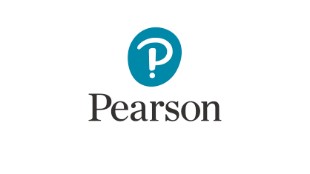Pearson and UK India Business Council (UKIBC) join hands to host a virtual Roundtable session on “The Changing world of Work in India”
New Delhi: With an aim to understand how the work sphere is changing in response to Covid-19 and what are some of the challenges and opportunities it brings with it, Pearson and UK India Business Council (UKIBC) recently came together to organize a virtual Roundtable session on “The Changing world of Work in India: Needs, Challenges and Opportunities”.
The event welcomed participation from some of the top industry professionals and education dignitaries to engage in a high-level focused dialogue on how the world of work is evolving, skills gaps that employers face, changing needs of a 21st century workplace, and the innovative steps that can be taken by industry and academia jointly to address these challenges. Speakers on the panel included, Dr. V M Bansal, Chairman, New Delhi Institute of Management (NDIM); Mr. Mussarat Hussain, AVP HR, Maruti Suzuki India Pvt. Ltd.; Dr. Jatinder Singh, Director, PHDCCI; Mr. Sameet Gambhir, Joint VP and CS, DCM Shriram Ltd, Mr. D V Shastry, Executive Director (Training, R&D and Start Ups), GAIL (India) Ltd.; Dr. Sanjiv Mittal, Vice Chancellor, Sambalpur University, ODISHA and Dr. W C Singh, Professor of Management, Manipur Institute of Management Studies (MIMS).
Most of the conversations that took place highlighted the growing importance of soft and hard skills such as Adaptability, Communication, Teamplay, Cognitive flexibility, Digital skills and Leadership abilities in students – which all employers look for in new recruits. Corporate leaders shared their perspectives around hiring and training in a rapidly evolving workplace along with the challenges they face with regards to skills shortages, especially in areas such as IOT, Robotics, Virtual Reality, Artificial Intelligence and 5G. There was unanimous agreement that in order to prepare youth for the world of work, deeper partnerships between industry and education are vital and education programmes have to embed employability skills to start preparing students for their future career opportunities at a younger age.
Commenting on the session, Ramananda Sg, Vice President- Sales & Marketing at Pearson India said: “It was a wonderful experience for us to be collaborating with UKIBC and organizing this insightful Roundtable session. Given the implications associated with COVID-19 and the accelerated pace of technological disruption in the country, there is a need to have a clear understanding around how the workplace is changing, what it might look like in the future, what are the employers’ needs and how the TVET and higher-education sector can play a pivotal role in steering this shift. Our recently launched Pearson Global Learner Survey has also revealed leaners’ growing preference towards gaining new skills through vocational courses, trainings etc. which is why we offer career-focused educational programmes such as BTECs to empower individuals with hands-on practical learning experience and job relevant skills, that are in sync with global perspectives & employer demands. As the world’s learning company, we believe that we can be the active agents of this change and collaborate effectively with academic institutes to enhance employability and contribute to sustained economic growth.”
Kevin McCole, Managing Director at UKIBC said: “It was fantastic to work with Pearson on the crucial issue of the future skills needed in the rapidly evolving 21st century workplace. In the post-pandemic era it will be even more important for industry and academia to establish win-win partnerships. Companies and education providers can no longer afford to operate in isolation if they are to build resilience to withstand global forces and achieve prosperity and sustainability now and in the future. This fact informed the UKIBC’s recently launched ‘University Corporate Partnership,’ an exciting new initiative which aims to bring together like-minded UK universities and employers in India.”
The session also included Pearson leaders reflecting on the current trends impacting education and skills around the world and in India, as well as opportunities and challenges for learners, Indian businesses and education stakeholders (TVET and HE).
The Pearson presentation also highlighted the importance of socio-economic skills, how technical and vocational education has evolved over the last few years, particularly during the Covid-19 pandemic, and how Pearson is addressing skills gaps and demands by offering relevant, modern, skills and career-focused programmes, based on its BTEC brand, expertise and unique content, which open new doors to rewarding careers and professional education opportunities.

